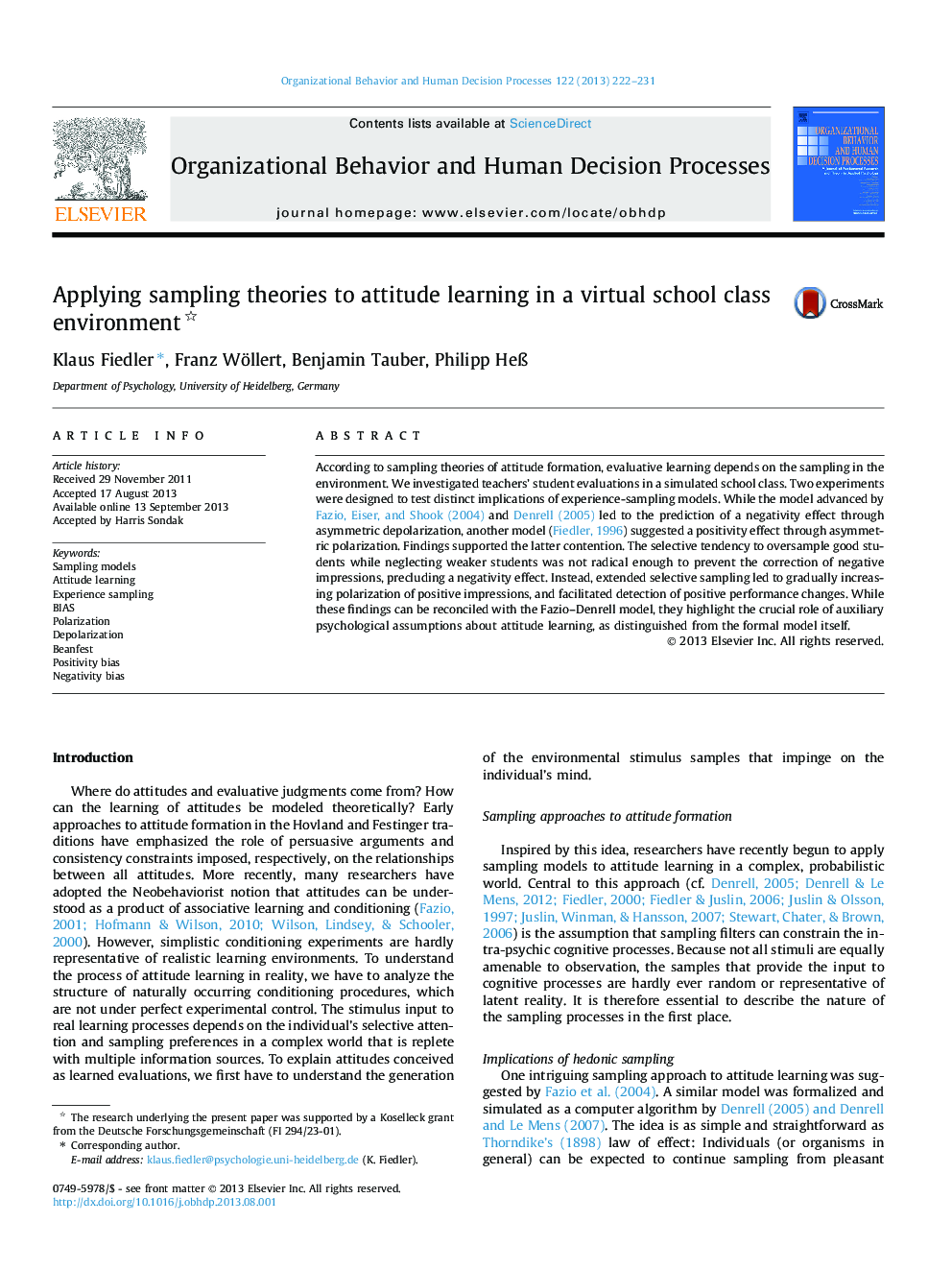| Article ID | Journal | Published Year | Pages | File Type |
|---|---|---|---|---|
| 10439867 | Organizational Behavior and Human Decision Processes | 2013 | 10 Pages |
Abstract
According to sampling theories of attitude formation, evaluative learning depends on the sampling in the environment. We investigated teachers' student evaluations in a simulated school class. Two experiments were designed to test distinct implications of experience-sampling models. While the model advanced by Fazio, Eiser, and Shook (2004) and Denrell (2005) led to the prediction of a negativity effect through asymmetric depolarization, another model (Fiedler, 1996) suggested a positivity effect through asymmetric polarization. Findings supported the latter contention. The selective tendency to oversample good students while neglecting weaker students was not radical enough to prevent the correction of negative impressions, precluding a negativity effect. Instead, extended selective sampling led to gradually increasing polarization of positive impressions, and facilitated detection of positive performance changes. While these findings can be reconciled with the Fazio-Denrell model, they highlight the crucial role of auxiliary psychological assumptions about attitude learning, as distinguished from the formal model itself.
Related Topics
Social Sciences and Humanities
Business, Management and Accounting
Marketing
Authors
Klaus Fiedler, Franz Wöllert, Benjamin Tauber, Philipp Hess,
